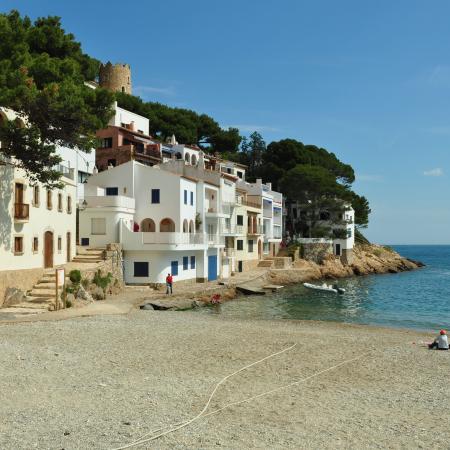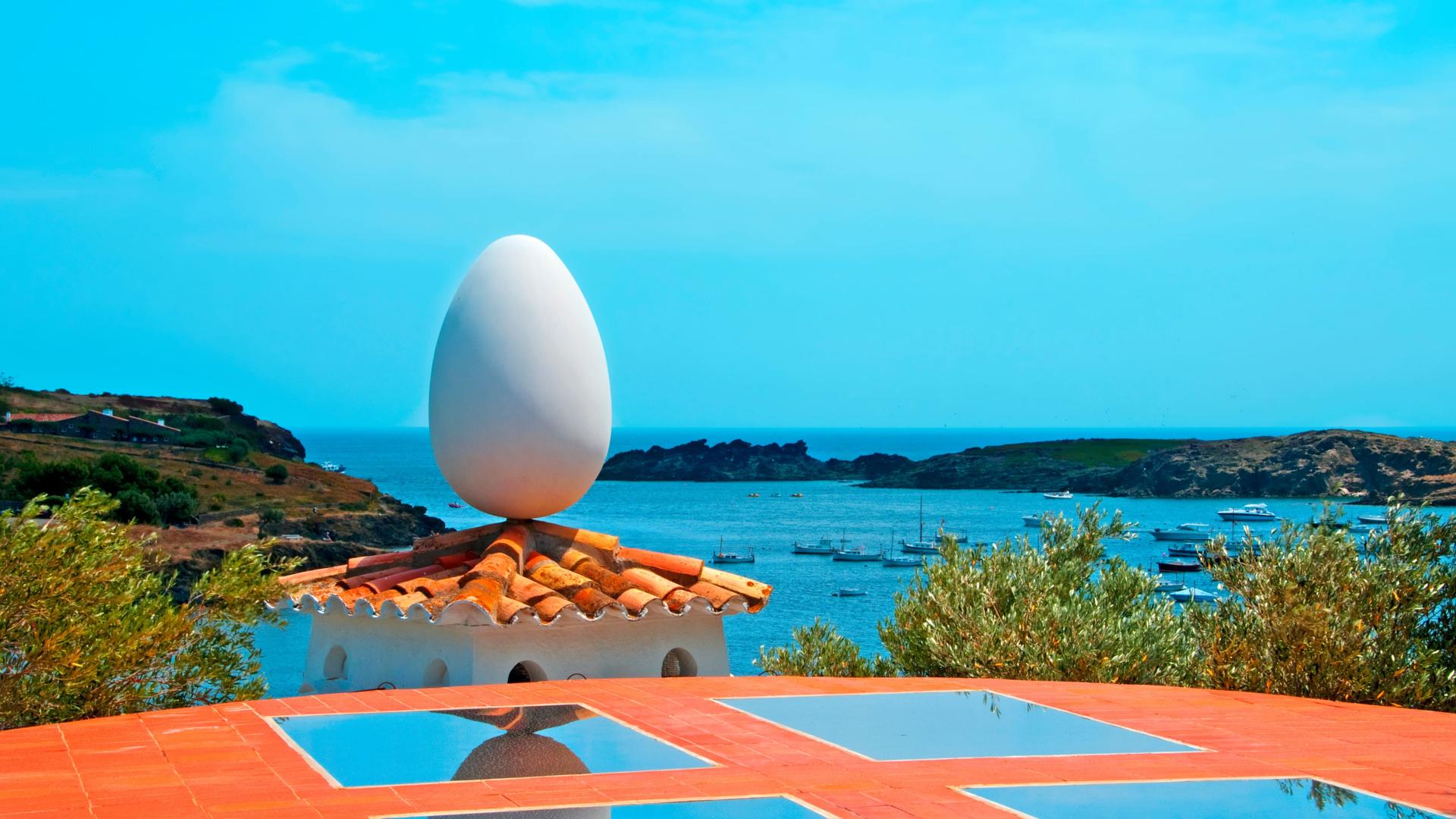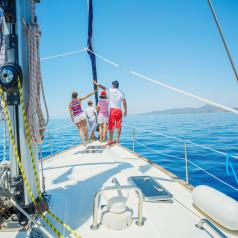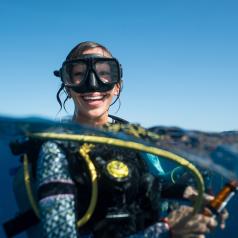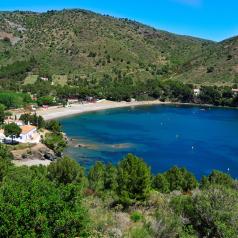Culture
Explore the rich history and traditions of Roses, Cadaqués, Cap de Creus, and many other nearby towns, or visit essential places such as the Dalí Museum and the Aiguamolls de l'Empordà Natural Park. Do not miss the opportunity to explore the culture and heritage of the Costa Brava during your stay at Prestige Hotels. Discover everything that the Costa Brava has to offer you!
Roses
Discover the charm of the coastal town of Roses, one of the most important in the north of the Costa Brava. Its nearest beaches and coves are located near the centre and the coastal paths that border the coast.
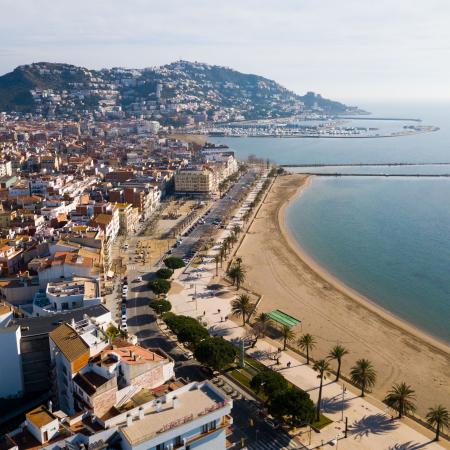
Cadaqués
The town of Cadaqués is, both for its inhabitants and for travellers, a peculiar place. This historic fishing village currently has a population of about 3,000 inhabitants dedicated mainly to tourism. The growth and evolution of this town, however, has not changed its essence: its characteristic Mediterranean style has been maintained over the years and has remained in harmony with the small houses in the surrounding area, its olive groves and its pine forests.
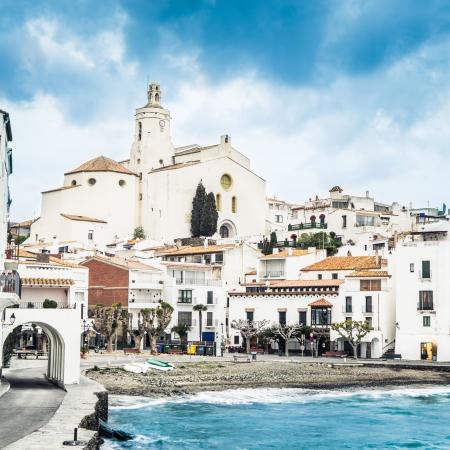
Cap de Creus
The Cap de Creus is an area of great beauty, endowed with a singular geological configuration, with structures and outcrops that form a unique ensemble in the world. The effect of the Tramuntana has caused the appearance of capricious forms of erosion and has transformed the landscape in a very special way.
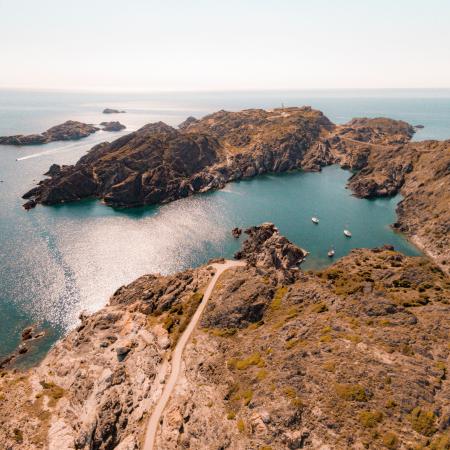
Monastery of Sant Pere de Rodes
The Monastery of Sant Pere de Rodes has historically been considered a typical example of Romanesque construction in Catalonia. Its origins date back to the 1st century after Christ. According to legend, Christians who came from Rome were shipwrecked in the bay and promised to build the monastery as an offering to God in this place. Christian doctrine understands Sant Pere de Rodes as one of the most significant monasteries. The first official mention of the monastery dates back to the year 878.
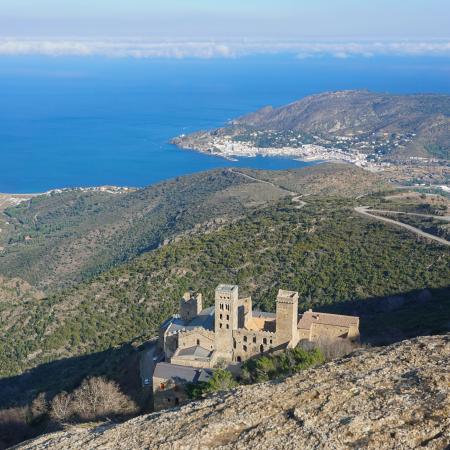
Dalí Museum
The Dalí Theatre-Museum, inaugurated in 1974 in the town of Figueres, was built on the remains of the old theater and contains the widest range of works that describe the artistic career of Salvador Dalí (1904-1989), from his first artistic experiences and his surrealist creations to the works of the last years of his life.
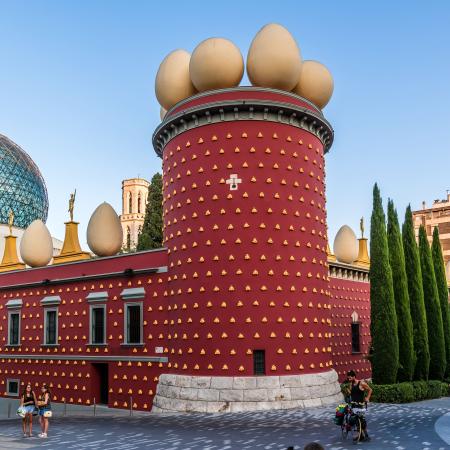
The Dalian Triangle
The Dalí Theatre-Museum in Figueres, the Salvador Dalí House in Portlligat and the Castell Gala-Dalí House Museum in Púbol form the so-called Dalí-Triangle, three spaces that explain the career of the artist Salvador Dalí, one of the greatest representatives of surrealism. An essential visit for art lovers.
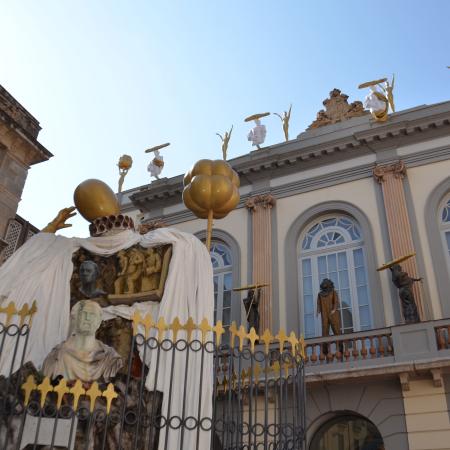
Citadel of Roses
The Citadel of Roses is the walled enclosure that formerly protected the town, founded as a Greek colony in the Gulf of Roses. Inside it brings together the vestiges of different occupations of the last thirteen centuries, such as the remains of the Hellenistic quarter of the Greek colony of Rhode, the Roman villa or the Lombard Romanesque monastery of Santa María.
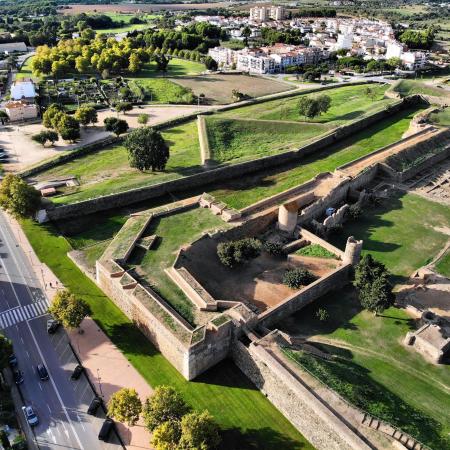
Saint Ferran Castle
Located on a hill, at the end of Pujada del Castell de Figueres street, is the Castle of Sant Ferran. It is a large military fortification built during the 18th century under the orders of various military engineers.
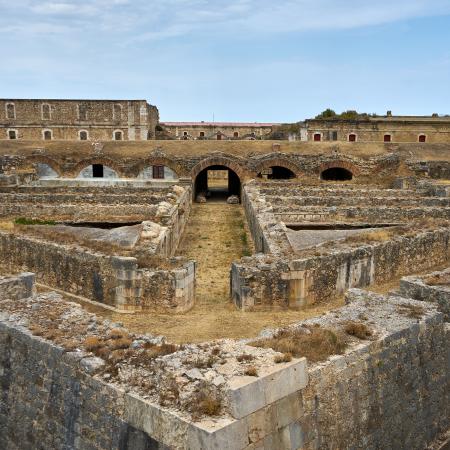
Aiguamolls de l'Empordà Natural Park
The Aiguamolls de l'Empordà Natural Park, which is located between the towns of Castelló d'Empúries, Sant Pere Pescador, Palau-saverdera, Peralada, Pau, Pedret i Marzà, l'Escala, Roses i l'Armentera, is a one of the most important wetlands in southern Europe where you will find migratory birds and native fauna.
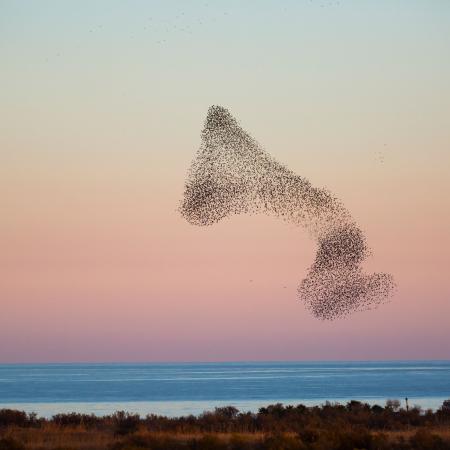
Ruins of Empuries
Ampurias (in Catalan, Empúries) is the only archaeological site on the Iberian Peninsula where the remains of a Greek city, Emporion, coexist with those of a Roman city, Emporiae.
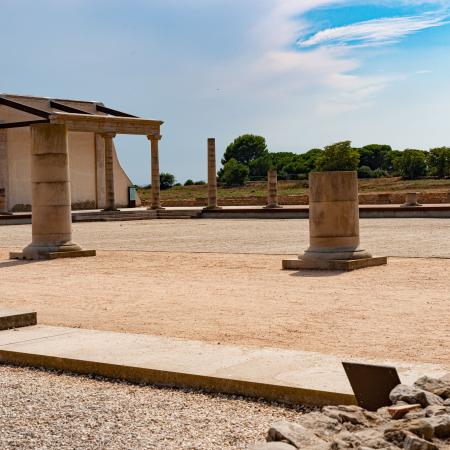
Peralada
The history of the village of Peralada dates back to around 500 BC, when a tribe of pre-Roman Iberian people decided to build the first walled enclosure. Today, the old town still maintains the medieval urban structure, as well as the names of the streets. Must-see visits include the village museum and the Sant Domènech Cultural Tourism Centre, although Peralada is famous for its castle, with its beautiful gardens, a restaurant and a casino, where one of the most important music festivals in Catalonia is also held during the months of July and August.
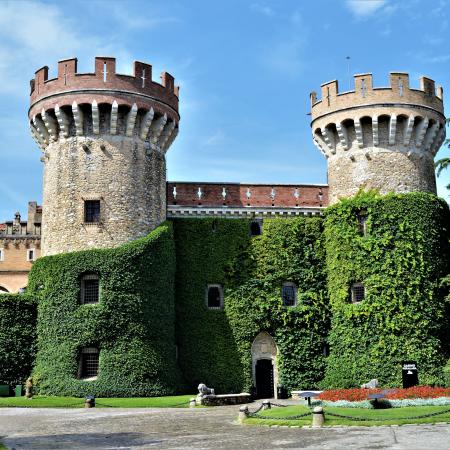
Castelló d'Empuries
Castelló d'Empúries is a town with a great medieval past, a key point, which was once a strategic walled enclosure. The Church of Santa Maria, or Cathedral of l'Empordà, is considered one of the most important monuments in the province of Girona.
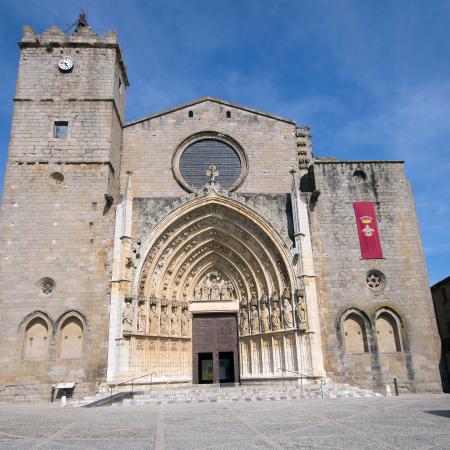
Besalú
Besalú, situated at the confluence of the Fluvià and Capellades rivers, is a monumental example of the Catalan Middle Ages. Located in the Garrotxa region, the town is just a stone's throw from the spectacular landscape of the Garrotxa Volcanic Zone Natural Park, in the last foothills of the eastern section of the Girona Pyrenees. The cobbled streets and facades are the most characteristic feature of the town centre, as can be seen in many places.
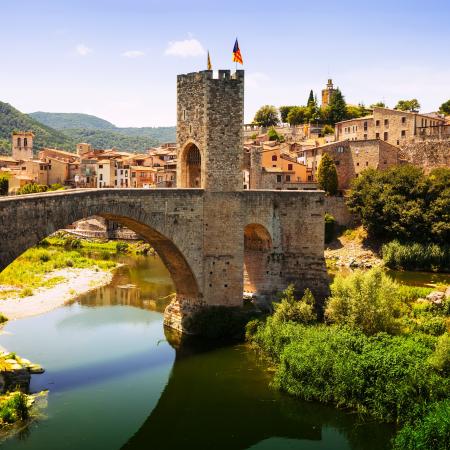
Girona
The city of Girona is distinguished by the beauty of its historic buildings, such as the imposing Cathedral or the curious church of Sant Fèlix; and by the authenticity of its streets, such as the old town or the Rambla, which have perfectly preserved their medieval features. But it is also a fashionable city thanks to the cultural, scenic and gastronomic elements it offers, as for example it has one of the best restaurants in the world, the Celler de Can Roca.
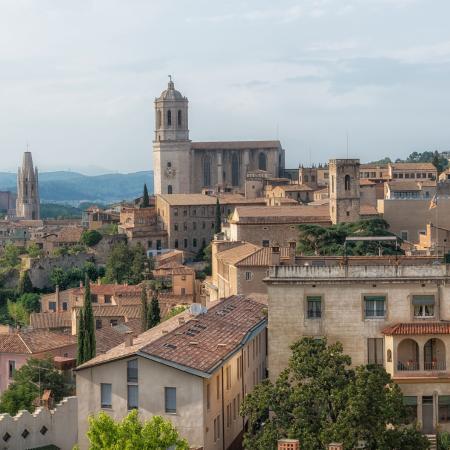
Barcelona
The city of Barcelona stands out for its impressive architectural heritage, with icons such as the Sagrada Familia and Parc Güell, masterpieces by Antoni Gaudí. Its streets, such as those of the Gothic Quarter or Passeig de Gracia, offer a unique mix of history and modernity. In addition, Barcelona is a world cultural and gastronomic reference, with an offer that includes everything from traditional tapas bars to restaurants with three Michelin stars. Its vibrant artistic life and the beauty of its Mediterranean coastline make Barcelona an unrivalled destination.
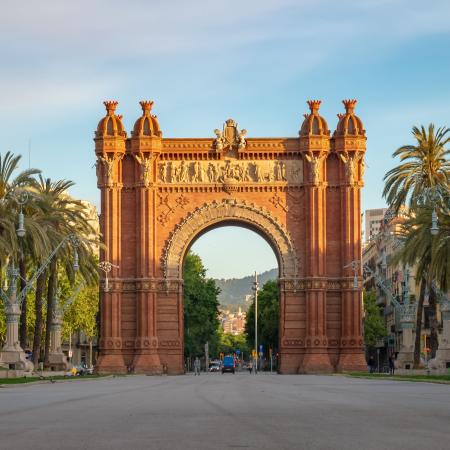
Other towns
Both the Alt Empordà and the Baix Empordà have idyllic towns. Some located further inland and others by the sea, many of these towns have managed to preserve the tradition and magic of the Costa Brava, being able to enchant any visitor today. In the Alt Empordà, there are important cities such as Figueres, the centre of the region, where its shops and museums stand out; Portbou, which is the last town on the Iberian Peninsula, bordering France on the coast; and Port de la Selva, a coastal town, where you can enjoy its tranquility and good cuisine. In the Baix Empordà, Begur or Calella are ideal for walking and getting lost in their streets; while Ullastret or Peratallada stand out for their medieval towns.
